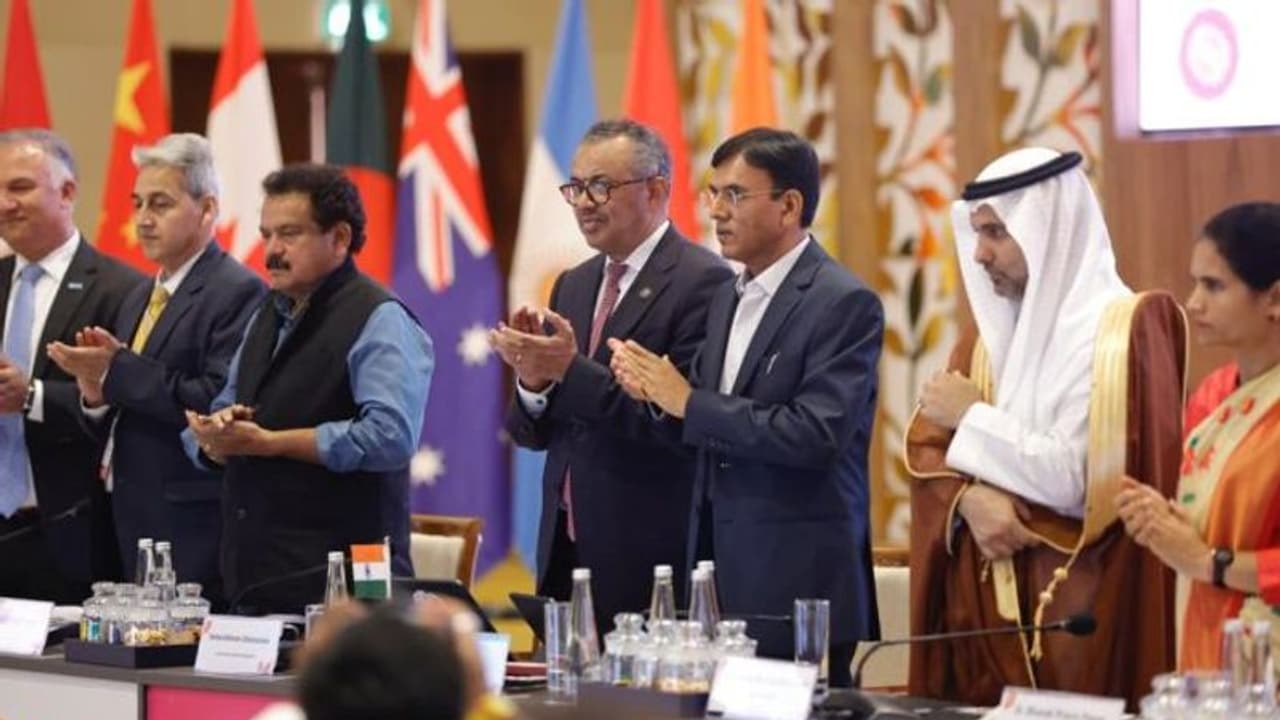The Global Initiative on Digital Health will function as a network and platform managed by WHO, with the aim of facilitating the implementation of the Global Strategy on Digital Health 2020–2025. This initiative stands as a key accomplishment during India's G20 Presidency.
The Global Initiative on Digital Health (GIDH), a collaborative effort between the World Health Organization (WHO) and the G20 India presidency, was unveiled on Saturday during the Health Minister’s Meeting of the G20 Summit, which was hosted by the Government of India. GIDH, also referred to as "guide," will function as a network and platform managed by WHO, with the aim of facilitating the implementation of the Global Strategy on Digital Health 2020–2025. WHO holds the role of the strategy's Secretariat, working to bring together worldwide standards, optimal practices, and resources to expedite the transformation of digital health systems.

Dr Tedros Adhanom Ghebreyesus, WHO's Director-General, expressed gratitude towards the G20 nations and the G20 Presidency of India for acknowledging WHO's unique expertise and capabilities in this domain and for supporting the creation of the GIDH network. He emphasized that collaborative efforts are vital for achieving shared goals and that WHO is committed to collaborating with countries to enhance their capabilities and enhance access to reliable digital solutions for a healthier and more equitable future.
Union Health Minister Dr Mansukh Mandaviya, speaking at the launch, characterized the introduction of the Global Initiative on Digital Health as a significant achievement for the G20 Health Working Group. This initiative stands as a key accomplishment during India's G20 Presidency.
The primary objectives of the GIDH initiative encompass fostering collaboration among nations and partners to attain concrete results by:
* Crafting distinct investment strategies focused on digital health transformation, driven by well-defined priorities.
* Enhancing the disclosure and openness of digital health resources through improved reporting.
* Promoting the exchange of expertise and cooperation among various regions and nations to expedite advancements.
* Backing comprehensive governmental strategies for digital health governance within countries.
* Augmenting both technical assistance and financial backing for the execution of the Global Strategy on Digital Health 2020–2025, including its forthcoming phase.
Since the inception of the first WHO resolution on eHealth in 2005, which paved the way for the WHO Global Strategy on Digital Health, more than 120 WHO Member States have developed national digital health policies or strategies.
While the COVID-19 pandemic has led to a surge in digital health usage, numerous countries have expressed the need for assistance in transitioning from project-driven and trial digital health initiatives to establishing comprehensive national digital health infrastructure, complete with appropriate governance, policies, and a competent healthcare workforce capable of selecting, maintaining, and adapting digital health interventions.
Partnerships between WHO and various stakeholders have resulted in substantial commitments, both financial and in-kind, to support the launch of this groundbreaking Initiative.
Digital health has proven to be a catalyst in advancing health outcomes towards the achievement of Universal Health Coverage and health-related Sustainable Development Goals by 2030. These interventions play a crucial role in enhancing healthcare by empowering individuals to manage their health, aiding healthcare providers in adhering to guidelines and delivering top-notch care, and reinforcing health systems through the improvement of supply chains and workforce management.
